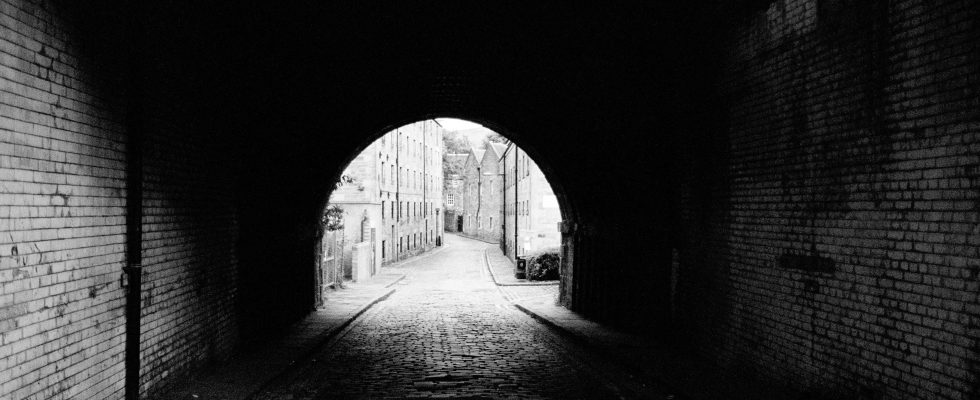It is sometimes difficult to define the charm of a thriller. It is thus Vine Street by Dominic Nolan, published by Rivages. Summary of a sentence, banality lurks since it concerns the investigation carried out by a London police officer after the death of a woman whom he refuses to classify as suicide; for decades, he has been chasing a serial killer nicknamed “the Brigadier”. But the discerning fan of noir novels will not be fooled by the labels. Serial killer, historical thriller, great saga… the novel is much more than what its presentation wants to reduce it to. The many avenues opened up since the original murder take the reader down unexpected paths.
Certainly, we are happy to follow the killer’s quest and discover what face the author has drawn for him. We let ourselves be carried away by the adventures, through an extremely complex plot, without always understanding the mechanisms, but that is not the important thing. It’s not in the “historical saga” side either. Because if the novel appears to take place over several periods – 1935, 1963 and 2002 – the first actually counts much more than the others. It is there, before the Second World War, then during the years when London was constantly being bombed, that most of the intrigue takes place. 1963 and 2002 are crucial highlights, intended to deceive, then skillfully enlighten the reader, but these years occupy only a small number of pages out of the book’s nearly 700 pages.
These apparent criticisms are not. The strength of Vine Street is elsewhere, in the atmosphere it gives off. What captivates and seduces is living to the rhythm of London in the 1930s. Or rather a district of London, that of Soho, with its jazz and strip clubs, where thugs of all kinds meet and wars are waged, where prostitutes are imported from France, where Maltese, Yiddish and Italian underworlds monitor and kill each other, where we meet, during an evening, the Mitford sisters, real characters, who became famous for the unfortunate relations of some of them with the Nazis.
All under the gaze of police officers not exempt from immorality. Some drown in these alleys, in alcohol, sex or corruption, others survive by adopting methods that are far from regular. In this pre-war atmosphere, which Dominic Nolan’s bold writing brings to life in the manner of an excellent decorative chef, there are also German, French or British spies, who sometimes play thugs when it is not necessary. It’s not the opposite, mixing genres with joy.
Triangle of troubled feelings
In the middle of this beautiful world evolve Dominic Nolan’s heroes, unclassifiable because they are both detestable and endearing, obstinate and casual. There are three of them who get lost in this investigation where, each time we think we find a clue or a witness, a bomb falls in the wrong place, where, in the immediate post-war period, we no longer find the familiar landmarks of ‘a street, disappeared in the bombings. Leon Geats first, a police officer from the vice and nightclub squad, who blends into the neighborhood with an unusual naturalness. Doesn’t he begin the novel woken up by his partner while he is sleeping completely tipsy in his stairwell? But also Mark Cassar, always impeccably dressed to better hide the secret that he only admits late at night, when he dances with men in the smoke of clubs. And Billie, a female cop with whom the two are in love and with whom they form a triangle of troubled feelings. A self-effacing woman, who reveals herself a little stronger and more important throughout the pages.
With this Vine Street, Dominic Nolan, whose first text has been translated into French but whose previous novels are more classic in style, makes a remarkable foray into the noir landscape. He ranks alongside the creators of Peaky Blinders or an original Ian Rankin for the atmosphere of a British world made of red bricks, pubs and violence. Much more than a James Ellroy to whom the publisher saw fit to link it. Because with Dominic Nolan, everything is not as desperate as with the American author, love and humanity still have their reason for being. They are embodied by the attachment to a mother who still connects with life, by the strength of a teddy bear who consoles a child confronted too early with violent death. Like little glimmers of hope in a very dark world.
Vine Street by Dominic Nolan, trans. by Bernard Turle. Shores, 672 p., €24.90.
.
